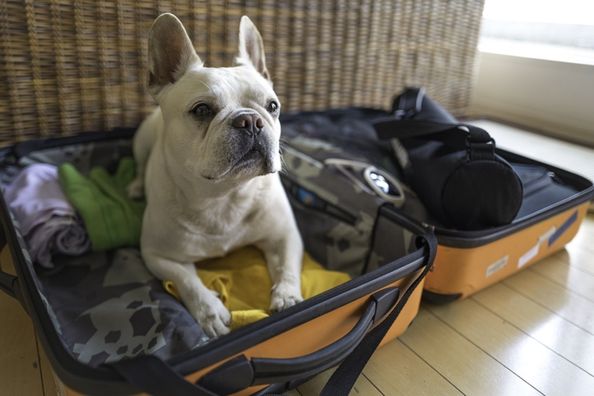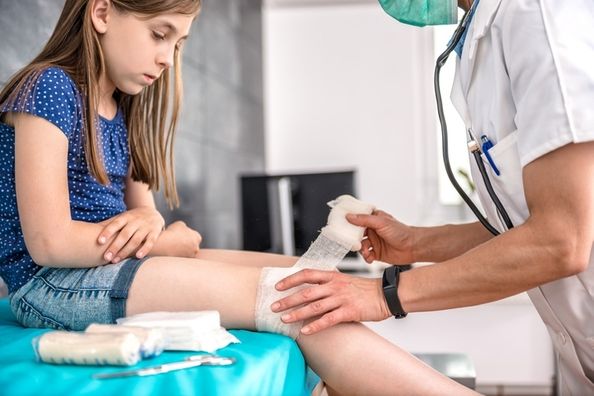Traveling is a great way to experience new things and make lasting memories. Developing an illness while you’re away from home can be stressful and have a significant impact on your plans. Whether you’re traveling locally or outside of the United States (U.S.), it’s important to be aware of the possible health risks you may encounter on your trip and have a plan to minimize them and address any symptoms that may develop, should you become ill. Infectious Disease and Travel Medicine physician, Noziana Aftab, MD, shares tips to keep you healthy while you’re on-the-go.
Before traveling internationally, you should:
- Check the Center for Disease Control and Prevention (CDC) website (CDC.Gov) for current health risks, the latest advisory information and vaccination recommendations.
- If vaccinations are recommended, schedule an appointment as soon as possible, as some vaccinations require multiple doses or take time (weeks or months) to become fully effective.
- Check with your insurance carrier to determine if your policy includes medical care while you are traveling. If you have coverage, be sure to pack your insurance card.
- If your insurance plan does not include medical care outside of the U.S., short-term coverage for travel-related medical services may be available.
- Medicare does not cover medical costs outside of the U.S. You can contact AARP for information on medical care coverage through supplemental plans for seniors.
- Fill out the emergency contact information on the inside of your passport.
- Keep a list of your medical conditions and the medications you are taking with you.
- Check with the embassy of the country you are visiting to ensure your medications are allowed and bring medications in their original, clearly-marked containers.
- You may need to obtain a prescription for any controlled substances you may be taking
For local or international travel, bring an assortment of over-the-counter items to address a variety of symptoms including:
- Headache and body pain or fever — ibuprofen, Tylenol
- Diarrhea or indigestion - Imodium, Pepto-Bismol
- Heartburn, gas or bloating — Tums
- Cuts, scrapes or burns — Band-aids, polysporin
- Cold or allergy symptoms such as nasal congestion, coughing, sneezing or sore throat — antihistamines, decongestants, nasal sprays and inhalers
- Bug bites — mosquito repellent with 30 percent DEET or higher
- Sun burn — sunblock with SPF30 or higher, sunglasses and a wide-brimmed hat
- Motion or altitude sickness — your primary care provider may be able to prescribe you medications to take as needed
- Sleep disruption — noise-cancelling earplugs
While not all illnesses can be avoided, you can reduce your risk of developing an illness by following these tips:
- Wash your hands with soap and warm water often and keep hand sanitizer accessible.
- Avoid tap water, beverages containing ice cubes and foods that are uncooked or washed with tap water. Whenever possible, opt for bottled beverages and stick to fruits you can peel yourself and cooked foods.
- Watch what you eat. Trying new foods can be fun and enhance your travel experience, however, drastically changing your diet over a short period of time can upset your stomach and cause digestive issues.
- Stay hydrated and get enough sleep. This will keep your body’s immune system strong and help you fight off any bacteria or germs you may be exposed to.
- Protect yourself from the sun and insects whenever you plan to spend time outdoors* especially at dawn and dusk.
- You should always check for ticks after spending time in wooded areas.
Should you become sick while traveling, you can relieve symptoms by:
- Skipping strenuous activities and giving your body time to rest, especially if you have a fever.
- Taking a hot bath or shower can help reduce inflammation and relieve cold or flu symptoms such as coughing and chest and/or nasal congestion.
- Selecting foods that are mild and easy to digest if you experience digestive issues including upset stomach or heartburn.
- Staying hydrated.
If your symptoms don’t improve or worsen, you may need to seek medical care. If you are outside of the U.S., a list of English-speaking healthcare providers can be obtained from the International Association for Medical Assistance to Travelers. While you can’t prevent illness or injury entirely, planning ahead can reduce your chances of getting sick while traveling. Learn more about our Infectious Disease and Travel Medicine providers, or to schedule an appointment for a consultation and vaccines prior to your next trip call 630−545−4075 or schedule online.
Health Topics:







